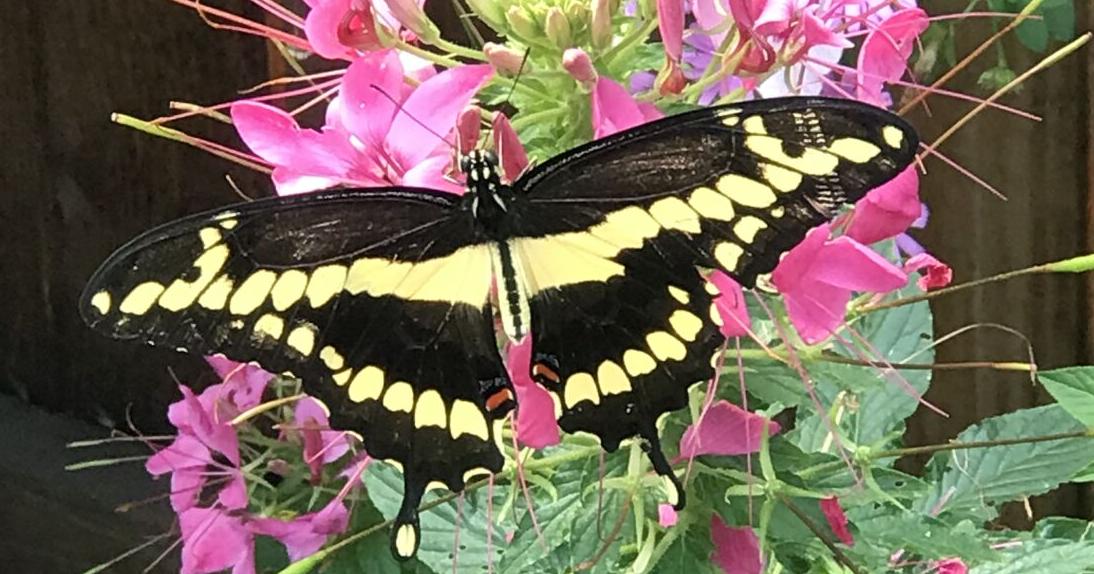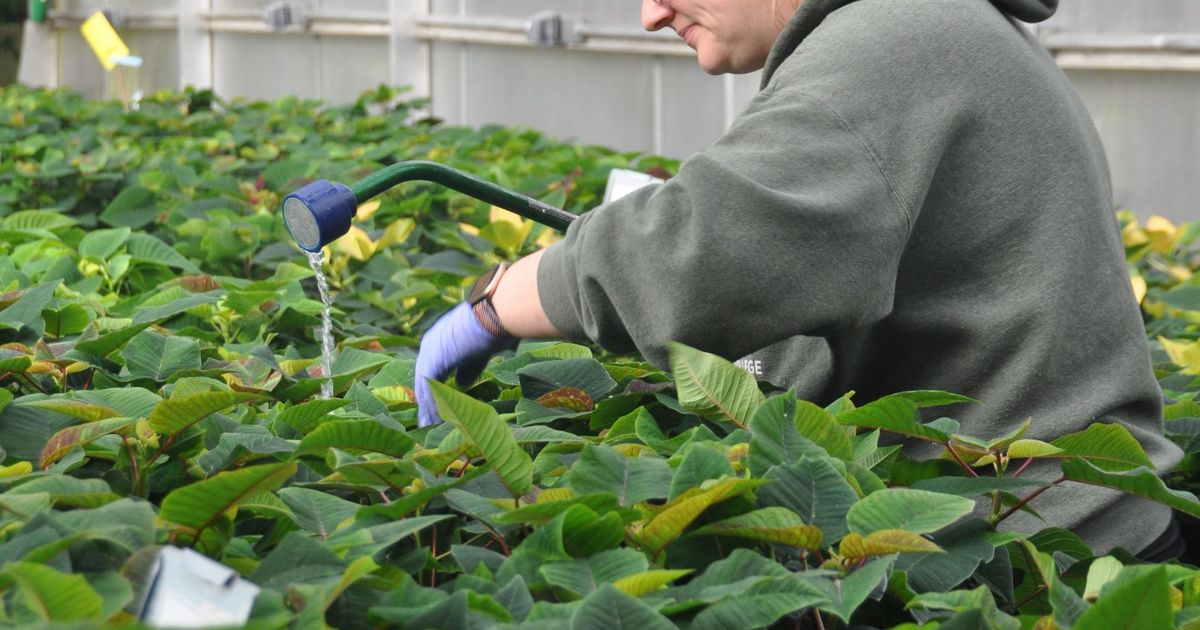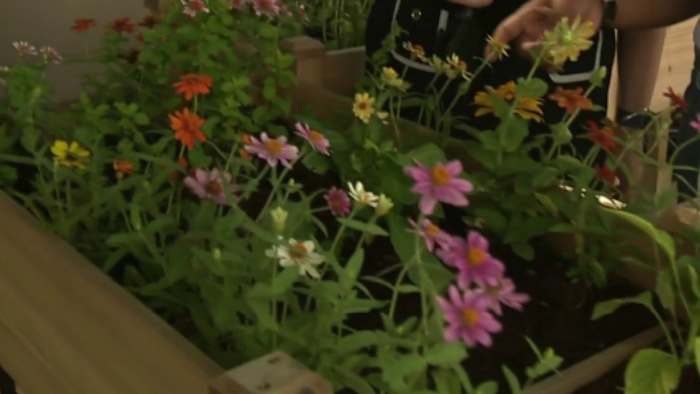The second-year greenhouse students in Tyler Beasley’s Spokane Community College greenhouse management class moved around their greenhouse benches in a choreographed dance. Huge benches full of poinsettia plants just coloring up are rolled back and forth to allow the students to get to their crops to chart growth, check for insects and disease and water. The space is tight with hundreds of plants being readied for the school’s annual poinsettia sale in a few weeks.
This year’s sale will be 10 a.m.-4 p.m. Thursday and Friday at SCC, 1810 N. Greene St., Spokane. The greenhouse is in Building 10 on the north side of the campus off Ermina Street.
Growing poinsettias is an annual event for the students. Many of them will go on to work in commercial greenhouses where various crops like bedding plants, perennials, vegetable starts and holiday plants are grown for the seasonal retail market. Beasley tries to give his students a real live experience, so they are ready for the commercial world. “When they get into industry, they will have to know how to time the crop and how to deal with the insect and disease issues that arise.”
It takes about four months to grow poinsettias from cuttings to flowering. The cuttings are planted in the SCC greenhouse the second week of July. Through August, the plants are carefully watered and fertilized to encourage growth. By the end of August, students begin pinching back stems to force the plant to bush out. Starting the third week of September, the plants start a rigorous cycle of total darkness at night to stimulate the development of the colorful bracts we associate with poinsettias. Managing light issues is Beasley’s biggest challenge, but he says breeders are developing genetics that aren’t as demanding, which will make growing the plants easier.
Beasley is particular about training the students to use bio-controls to deal with insects and disease. The day I was there, they were releasing parasitic wasps to head off white fly infestations. The wasp eggs are introduced on a card set among the leaves. When the eggs hatch the wasps seek out white flies. “We don’t like to use conventional pesticides unless we have to.”
Through the SCC program the students are learning the skills they will need to work in the wide-ranging horticultural field. Aric Wikum, who has spent time in Hawaii, wants to go into food production and make a difference growing healthy and sustainable crops. Sheila Grubb, who already has nine years of greenhouse experience, is hoping to start a small farm as well as a sustainable landscape management company. She told me that with the combination of the horticulture program and SCC’s business management classes she feels well prepared to step out after she graduates. Christina Seaman is already farming, and the classes she is taking at SCC have made a difference at her Resilience Farm in the Ponderosa neighborhood. “I am passionate about growing food for communities,” she said.








